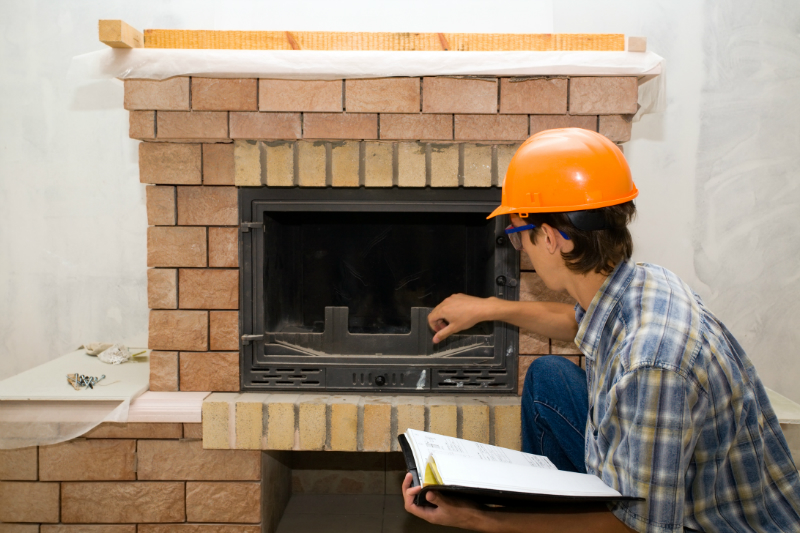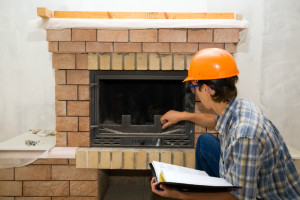Both can cost you thousands of dollars if you don’t get an inspection!
Everyone knows that it’s required to get a termite inspection by a reputable pest control company when a house is being sold. Have you ever wondered why it’s not required to have the chimney/fireplace inspected by a certified chimney professional when that same house is being sold? Well, unfortunately, I don’t have the answer for that here today. However, after being in this industry for more than 36 years, I can give you my perspective on why it should be a requirement.
Bad things can happen to chimneys!
- Chimneys can be built badly – so badly that they will not work well.
- The flue may be too small or too large
- The chimney may be too short.
- The smoke chamber may be unparged, too tall or not tall enough.
- Pre manufactured chimneys may not be put together properly and sometimes they are even installed with pieces and parts missing.
- Flue liners may have been constructed with large gaps between them where they have not been mortared together properly.
- Chimney fires can cause damage that can cost thousands of dollars to repair.
- The National Fire Protection Association Standard 211 stipulates that ceramic chimney liners (terracotta flue tiles) that have cracks or gaps should be repaired or replaced before use.
- Some manufacturers of prefabricated fireplaces even stipulate that manufactured chimneys that have sustained a chimney fire must be replaced.
- Deterioration due to age, neglect and water intrusion can render a chimney unusable.
- Many unlined chimneys in very old homes have collapsed wythes (the interior walls of the chimney that separates the different flues) effectively blocking the flue passage
These are just a few of the things our technicians find when we are called out to inspect chimneys for a house under contract. Some of these defects are impossible to see without an internal scan of the chimney. Therefore we follow the guidelines set out by the National Fire Protection Association in their published inspection standard (NFPA 211). Their requirement is that a Level 2 inspection be performed where a house sale is involved.
Level 2 Inspections– A Level 2 inspection is required when any changes are made to the system. Changes can include a change in the fuel type, changes to the shape of, or material in, the flue (i.e. relining), or the replacement or addition of an appliance of a dissimilar type, input rating or efficiency. Additionally, a Level 2 inspection is required upon the sale or transfer of a property or after an operation malfunction or external event that is likely to have caused damage to the chimney. Building fires, chimney fires, seismic events as well as weather events are all indicators that this level of inspection is warranted….NFPA 211
Other “changes” requiring a Level 2 Inspection (per NFPA 211):
- Fuel type –
- gas to wood
- wood to gas
- Replacement of an appliance –
- new upgraded wood stove
- adding a wood stove or wood stove insert
- Chimney fire occurrence
So…the bottom line in all this is — if you are buying a house and it has a (supposedly) functioning chimney, it is our opinion that it would be to your advantage to pay the extra for an NFPA 211 Level 2 Inspection by a CSIA Certified Chimney Sweep. What you find out could protect you from disappointment or costly expense down the road.


